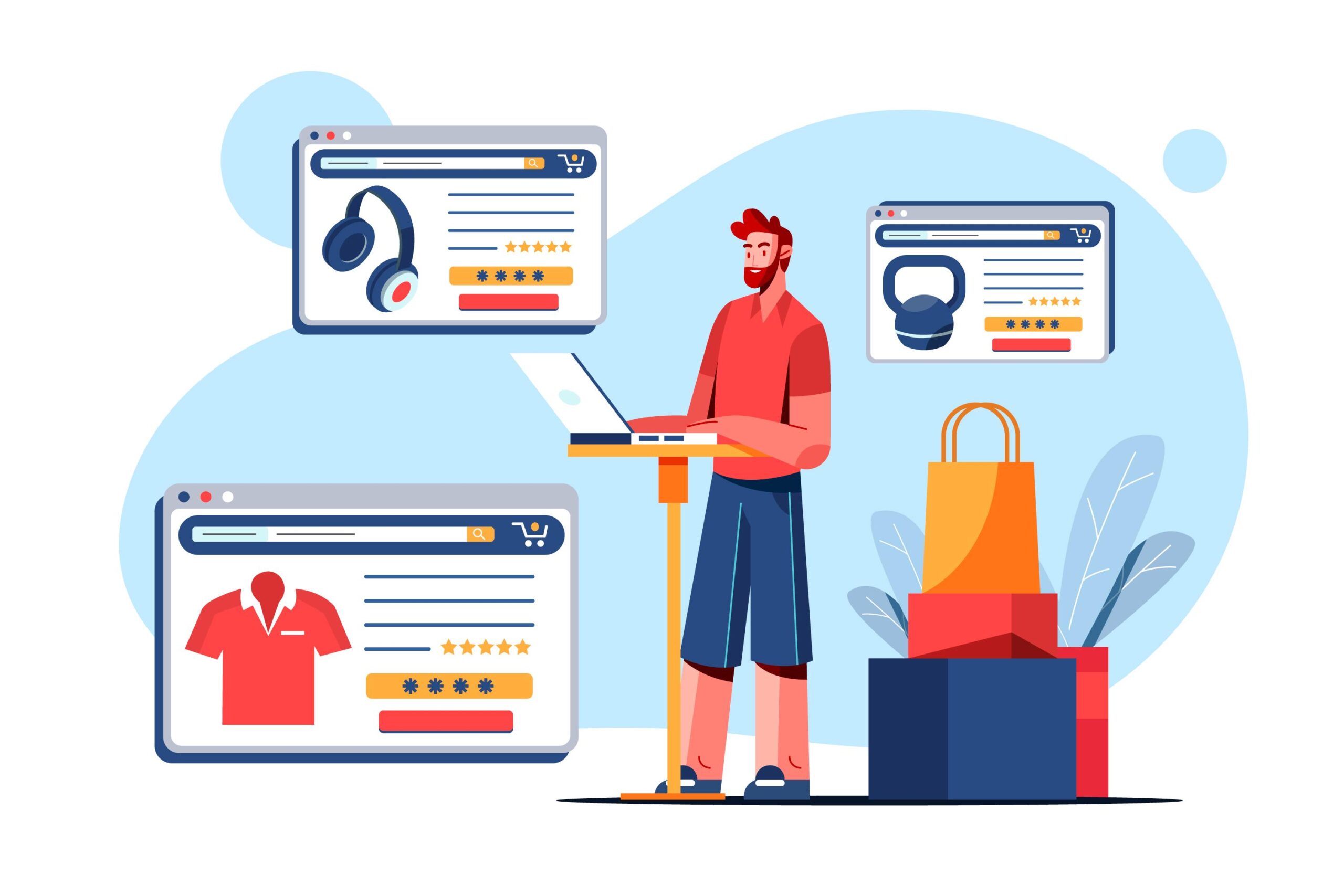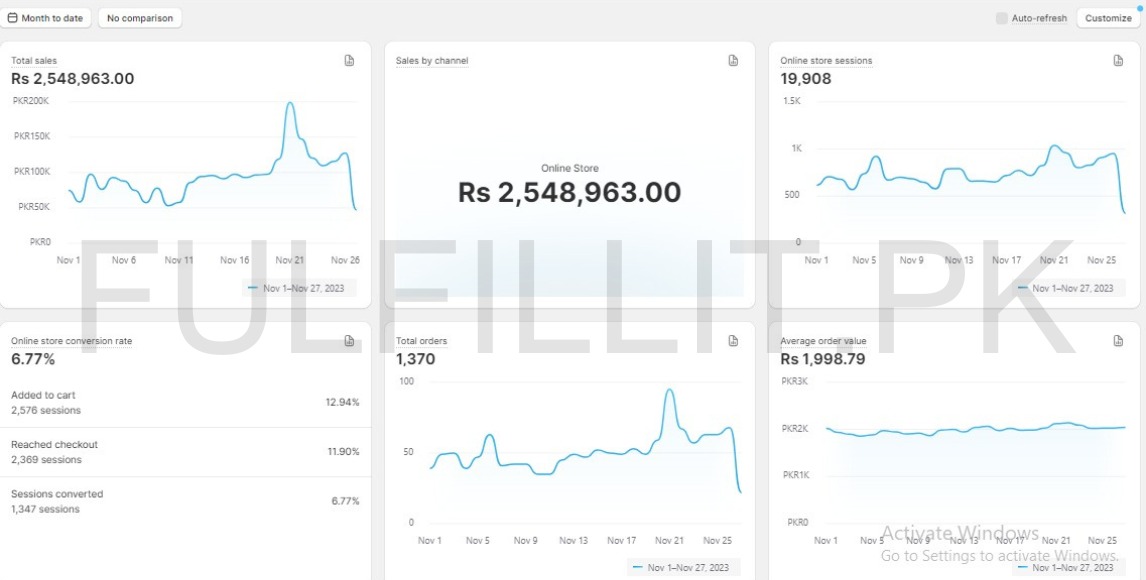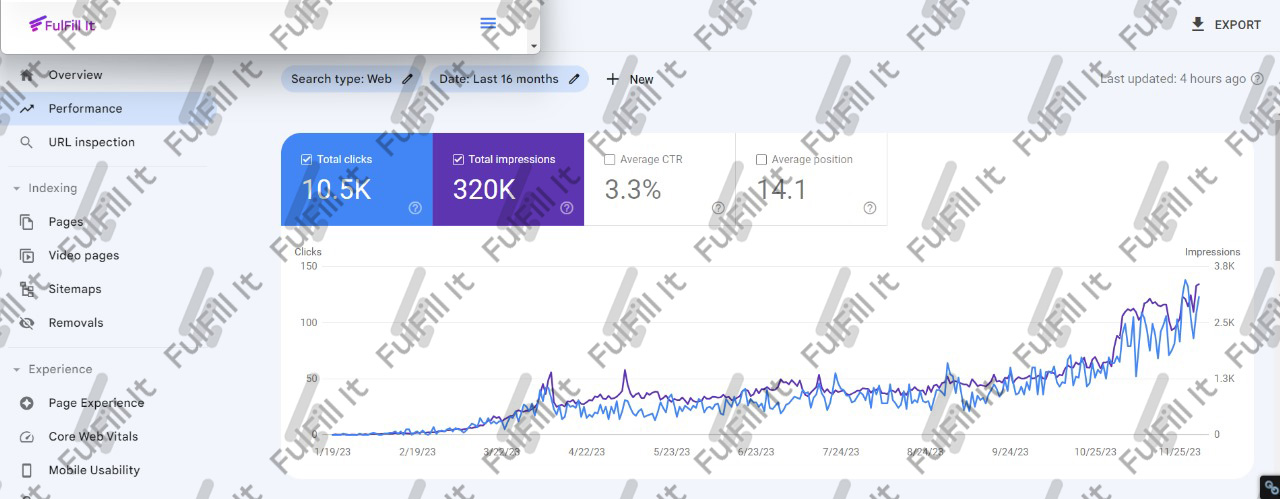Are you looking for a way to start your own online business in Pakistan? Do you want to sell products that are unique, high-quality, and profitable? If yes, then you should start a private-label business.
What is Shopify Private label?
A private label business is when you sell products that are made by a manufacturer, you source them, make an inventory to store them, and give your brand name and logo on them.
This way, you can create your own private label in Pakistan. However, running a private label business in Pakistan is not without its challenges.
You need to find a reliable manufacturer, create a Shopify store, register a domain name, integrate payment and shipping methods, and promote your store to your target audience.
In this guide, I will show you how to start a private label business in Pakistan step by step, from finding a product idea to launching and growing your store.
Conduct Market Research and Identify Your Niche
Conducting market research and identifying your niche is the first and most important step in starting a private-label business. This step will help you find a product idea that is profitable, unique, and in demand. It will also help you understand your target market, your competitors, and your value proposition.
By conducting market research and identifying your niche, you will be able to create a product that solves a real problem, meets customer expectations, and has the potential to sell.
Here are three things you must do before launching your brand.
1. How to Find a Profitable Niche
One of the most important steps in starting a private label business is finding a product idea that is profitable, unique, and in demand.
There are many ways to find product ideas, such as browsing online marketplaces, following trends and social media, reading customer reviews, and solving your own problems. However, not every product idea is suitable for private labeling.
You need to consider factors such as product size, weight, durability, complexity, and legality. You also need to avoid products that are too competitive, too seasonal, or too niche. Ideally, you want to find a product that has a high demand, low competition, and a good profit margin.
2. How to Analyze Niche Competition
Once you have a list of potential product ideas, you need to analyze the demand, competition, and profitability of your niche. This will help you narrow down your options and choose the best product for your private-label brand.
You can use tools such as Google Trends, Keyword Planner, and Shopify’s Market Research Tool to measure the demand and popularity of your product ideas.
You can also use tools such as Amazon’s Best Sellers, AliExpress’s Hot Products, and Shopify’s Exchange Marketplace to check the competition and sales of your product ideas.
Finally, you can use tools such as Alibaba’s Supplier Directory, Shopify’s Profit Margin Calculator, and Shopify’s Pricing Strategy Guide to estimate the cost and profit of your product ideas.
3. How to Validate Your Niche
Before you invest in manufacturing and branding your product, you need to validate your product idea with customer feedback and testing. This will help you avoid wasting money and time on products that no one wants or that have quality issues.
You can use methods such as surveys, interviews, focus groups, and online forums to gather customer feedback and insights on your product idea. You can also use methods such as pre-selling, crowdfunding, and dropshipping to test the market demand and viability of your product idea.
By validating your product idea, you can ensure that you are creating a product that solves a real problem, meets customer expectations, and has the potential to sell.
Here are some steps that you can take to start your Shopify private label brand in Pakistan.
Get a Domain and Secure Your Store
Choose and register a domain name for your store, find a unique and catchy domain name that reflects your brand and niche. You should also check the availability and price of your domain name. You should also buy and connect your domain name to your Shopify store.
Activate and configure your SSL certificate for secure transactions, you should use the SSL feature in Shopify to enable encryption and authentication for your store’s data and communications.
Verify that your store’s URL starts with https:// and has a padlock icon in the browser. You should also update any links or redirects that use http:// to https://.
Create Your Shopify Store:
To set up your Shopify account and store settings, you should sign up for a free trial on [Shopify] and choose a store name and password. You should also fill in your personal and business information, such as your address, phone number, and tax details. You should also configure your store preferences, such as your currency, timezone, and language.

To choose and customize a theme for your store design, you should browse the Shopify Theme Store and select a theme that matches your brand and product niche. You should also use the Theme Editor to customize your theme’s colors, fonts, layout, and features. You should also add your logo, favicon, and slideshow images to your theme.
To create a logo, slogan, and brand story for your private label brand, you should use tools such as Shopify Logo Maker to create catchy and memorable elements for your brand.
You should also write a compelling About Us page that tells your brand’s story and mission. You should also create a Contact Us page that allows your customers to reach you easily.
How to add products to the Shopify store?
Do proper keyword research and market research to create product titles, descriptions, and images that sell, to create appealing and persuasive content for your products.
Use keywords, benefits, and features to highlight your product’s value proposition. Also use high-quality and professional photos or videos to showcase your product’s appearance and functionality.

To organize your products into collections and categories, you should use the Collections feature in Shopify to group your products by type, theme, or other criteria. You should also use tags and filters to help your customers find your products easily. Also, create Menus and Navigation to link your collections and pages to your store’s header and footer.
To set up product variants, prices, and inventory, you should use the Products section in Shopify to add different options for your products, such as size, color, or material. You should also set the price, compare at price, and cost per item for each variant. You should also track the inventory and stock level for each variant. You should also enable SKU numbers and barcodes for your products if needed.
Marketing and Sales:
- To test and optimize your store before launching, use the Shopify Launch Checklist, which helps you review and complete the essential tasks for your store, such as adding products, setting up payments, testing orders, and more.
- Create and manage your marketing campaigns using various channels, such as email, social media, ads, and more. In Pakistan Facebook ads are most effective for marketing and getting your desired sales with the best ROI, this is also cost-effective for marketing your private label brand. Here is a guide to Facebook Advertising Costs in Pakistan and FB ad setup
- Use social media, email marketing, and SEO to drive traffic and sales to your store, for that purpose you have a lot of options you can hire a team, do it yourself is a bit hard, just give all the work to a professional and experienced agency like our’s Fulfillit Digital Marketing Agency in Lahore that is the first agency who provide a to z shopify private label service in Pakistan
Want us to make a profitable Shopify store from A to Z check out our Shopify Local PL service and schedule a free consultation with me.
Fulfillment and Shipping:

COD, or cash on delivery, is a popular payment method in Pakistan, where customers pay for their orders in cash when they receive them. COD can help you increase your sales and customer trust, as many people prefer to pay in cash or are reluctant to share their credit card details online.
FAQs
What is a Shopify private label business?
A Shopify private label business is a type of e-commerce where you sell products that are manufactured by a third party, but branded with your logo and packaging. This way, you can create your unique product line without investing in production or inventory.
What are the benefits of starting a Shopify private label business in Pakistan?
Some of the benefits of starting a Shopify private label business in Pakistan are:
You can leverage the growing e-commerce market in Pakistan, which is expected to reach $7 billion by 2025.
You can differentiate yourself from other online sellers by offering exclusive products to your brand.
You can save time and money by outsourcing the manufacturing and shipping processes to reliable suppliers.
You can use Shopify’s platform and tools to easily set up and manage your online store, accept payments, and market your products.
AccordiHow do I find a product idea for a Private label business?
To find a product idea you can follow these steps:
Conduct market research to identify your target audience, their needs
Browse online marketplaces like Alibaba, and AliExpress to find potential products
Contact the suppliers and ask for product samples, prices, etc
Evaluate the quality and profitability of the products and suppliers
How do I accept payments and ship orders for my Shopify PL?
COD is the best working method to receive your payments for Shopify’s private label store in Pakistan. The best courier services are Leopards and Digidokaan for your e-commerce shipping and payments
How do I market and grow my Shopify private label business?
Create a marketing plan and budget for your store
Use Shopify’s built-in SEO and analytics tools to optimize your store
Use social media platforms, such as Facebook, Instagram, and YouTube, to showcase your products
Use email marketing, SMS marketing, and SEO.
Use Shopify’s apps and integrations to enhance your store’s functionality and customer experience.








